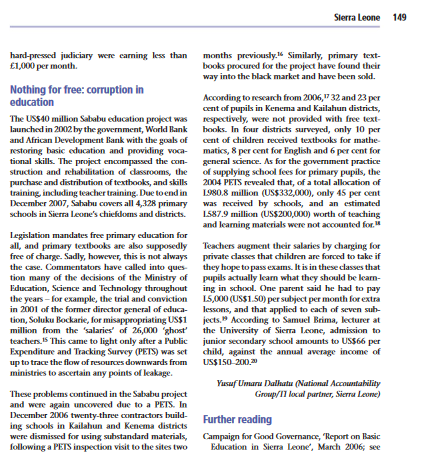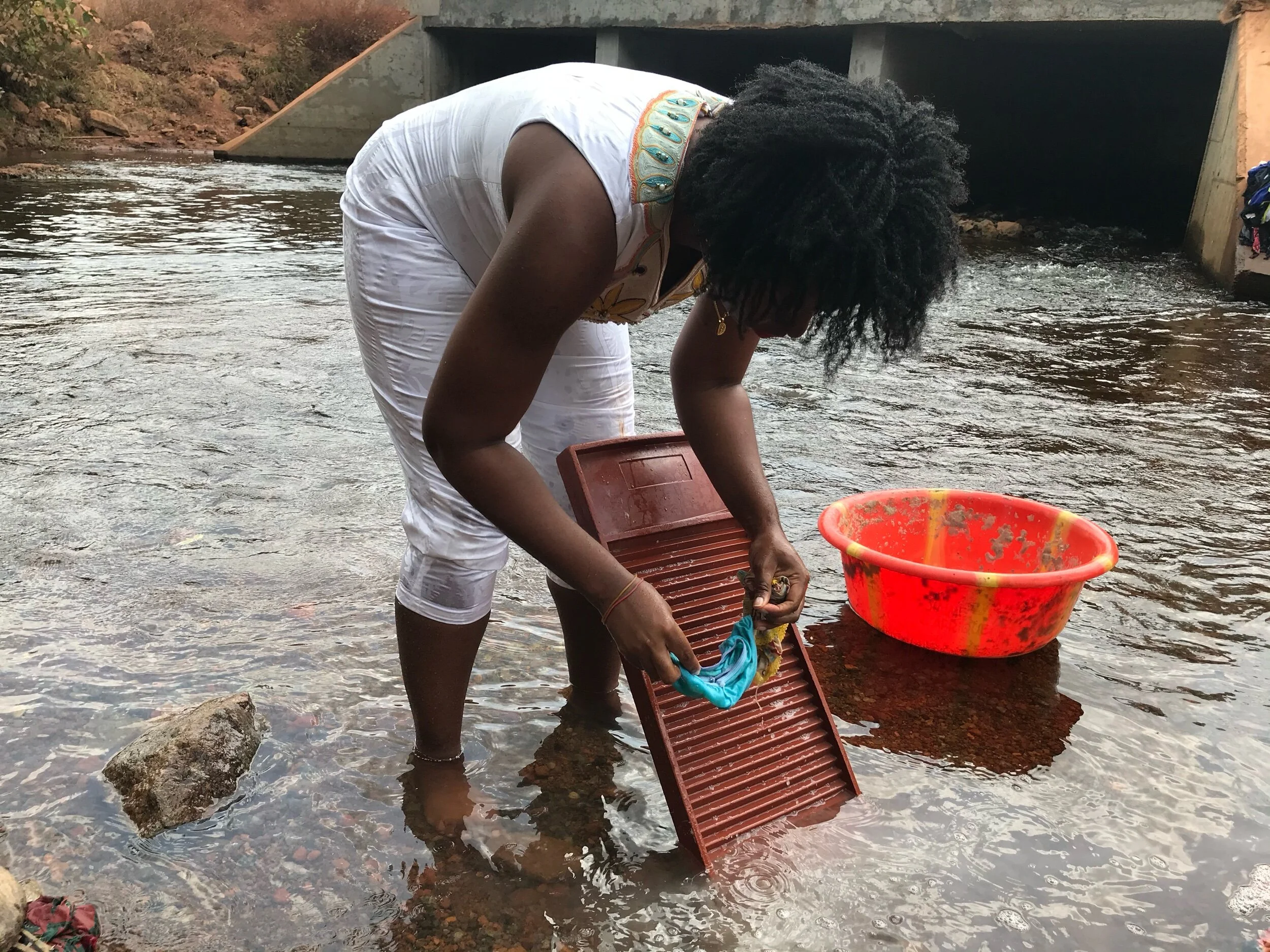Sierra Leone's very serious English problem
For decades Sierra Leone’s educational system was bereft of learning. English the nation’s official language is a burden on a majority of citizens aged 18-40 (children of the war) who struggle to speak it fluently.
During our parents’ generation, others from the Commonwealth came to Sierra Leone to learn in English but today educated Sierra Leoneans of a certain age consider the English language to be a foreign inconvenience.
To understand why our generation struggles with English we must state the facts; the Momoh Regime destroyed the educational system. Then the 11-year Civil War with it's on and off schooling, insecurity, and migration of people made it impossible for the majority of citizens who didn't leave home to get the education they needed. The only gains that the $40 million donor-funded SABABU Project that came after the war achieved were in the bank accounts of the government officials who gave themselves and their cronies contracts to build ghost schools, make toy desks and chairs, and pay ghost teachers to teach with ghost learning materials (page 145).
And that is how we got to where we are now. A country where speaking English in a place of business or a government office earns you both ire and envy. Speaking in English is now perceived as an intentional effort to show off one’s elite status. And if you dare to speak English with an accent different from what people believe is local the insolence!
English is the language of instruction in our schools. In Sierra Leone, 97% of children in Grade 1 fail the basic reading assessment exam and by class 4, three years later only 40% are reading at their grade level. Only a third of all students pass the national school-leaving exam. In as many as six districts less than 5% of those who take the WASSCE pass English. The level of failure in the educational system is so widespread that paying for marks is the norm.
And how do Sierra Leoneans react to the fact that children and educated adults can’t speak English? They decide that it would be better than no one speaks English at all and that the primary mode of communication should be Krio. A decision that not only erodes opportunities for learning English language skills but also gives a blow to indigenous languages.
Last week I was in a corporate meeting with an international brand. In the meeting, executives were watching clips of my TV Show. Imagine my shock when two executives both Sierra Leonean challenged the shows local content value because as they put it “English is not a local language”. They said the show must therefore not be for a Sierra Leonean audience.
I lowered my voice and claimed my ancestry with pride.
“I am a Krio woman and English is my local language”.
If you just cringed at that statement I would too ordinarily if the context were different. However, in this instance, it was a suitable and honest response. I was raised in a household of mixed cultural heritage. My father is a Krio man of Yoruba ancestry and my mother a Temne woman who spent her most formative years in Yonkers, New York.
The language of communication in our home was as much Krio as it was English. My parents both stopped communicating with me in Krio by the time I turned 10. It is not that they were being elitist rather they both understood that the only way I was going to learn English was if I was opportune to speak it. My family emigrated to Ethiopia in 1994 and later to the United States and for my most formative years, I lived abroad. When I open my mouth the default setting for language is Prince George’s County East Coast accented American English. At first listen, many Sierra Leoneans assume that because of how I sound when I speak English that I do not know how to speak Krio and for that, I am judged as ”false” a person pretending to be something they are not because of a lack of pride or love for home. Even friends who are not of Krio ancestry have the same problem and are judged the same way. But how do you judge a Mende man for not speaking Krio when he speaks his own language perfectly?
The fact is that Sierra Leoneans who share my background (child refugees who grew up in foreign lands away from our home) code switch when we need to speak to our people. In my case, I also have a Nigerian and a Ghanaian accented English for when I’m with my Naija and GH family. En plus Je parles le Français avec des Africains de pays Francophone.
If 233 years after the establishment of Granville Town in the Colony of Freedom and 56 years of Independence with English as the official language, Sierra Leoneans still consider English to be foreign then we have a problem. Our ancestors did not die for this. I’m not talking about glorifying the language of our colonizers or attempting to seek power by English proximity. What I am saying is that anyone who doesn’t see this newly found English language insecurity as a cause for concern and an indicator of our failed educational system is delusional. Kriotization will not save what is broken, it only makes it worse.
The people who want to enforce a Krio over English regime are the same ones causing a premium to be placed on speaking English. The fewer citizens who can effectively communicate in the language, the more people like me will continue to have doors and jobs open for them. I interact with people in government jobs who lack the skills to perform their roles but get to be in the room because they speak English well. Put them to the test to actually work and deliver...Alexa play ”Causing Confusion”. The only way to take power away from these “people whose only skill is English” (a descriptor used for me regularly) is to level the playing field by learning the English language.
Unlike many people who place a premium on speaking English, and mistake English language knowledge for intelligence or capability I am not one. However, given the fact that ours is an economy and society dependent on imports, foreign aid, and must participate in the global economy placing a premium on speaking Krio is immature.
Every indigenous language spoken in Sierra Leone deserves reverence. From Kuranko to Gola (now almost extinct) our languages preserve the civilizations created by our ancestors. Local language schools should exist across the country to allow citizens to learn but we can’t hide or run from English (at least not until the legislature replaces it as the official language).
So those who find themselves uncomfortable with speaking English should know that yes they are products of their environment-a failed educational system, but once in adulthood, the responsibility for learning English is on them.
The problem with the English language in Sierra Leone is not that people can't speak it, the problem is that those who ought to be encouraging English language proficiency are afraid because as products of a broken educational system they are insecure and keenly aware of their English language inadequacy.
The world will not readjust itself for Sierra Leoneans, even Sierra Leone isn't adjusting to accommodate the English language deficiency. The President makes his speeches in English and this will not change.
Instead of trying to promote the false narrative that English is not a local language we should instead ensure we are making our children globally competitive by giving them the English as a tool to communicate.
Where we ought to start is for adults who have come out of the broken education system to accept that they need to learn English and then get on with it.
My primary school notebooks







